Let’s keep this as simple as possible. There are millions of fly fishers here in the United States. Many of us are passionate anglers who care deeply about our sport. If we want productive fisheries in the future, then we need clean water and robust landscapes. Healthy ecosystems are an absolute prerequisite for healthy fisheries. Unfortunately, America’s waters are currently faced with any number of serious threats, including habitat destruction, invasive species and pollution.
Of all the threats to our rivers, streams, lakes and oceans, though, the largest, most pervasive and most dangerous is still anthropogenic (human-caused) climate change.
It should be obvious to every serious angler that we won’t be able to hold on to our productive fisheries, or stellar fishing, if we don’t address the biggest threats to our sport. And the single biggest threat is climate change. Which means that we have to tackle climate head-on.
That makes sense, right? If we want good fishing, we need good fisheries. And if we want good fisheries, then we have to protect them from the perils they face. It doesn’t get much simpler than that.
So what’s the problem? Well, the U.S. Environmental Protection Agency (EPA) just decided to throw out decades of empirical data and scientific research and declare that climate change isn’t an issue after all.
The EPA wants to roll back the agency’s 2009 “endangerment finding,” which concludes that greenhouse gas emissions — for example, CO2, nitrous oxide and methane — endanger public health and welfare.
To quote EPA Administrator Lee Zeldin, repealing the 2009 greenhouse gas endangerment finding would be akin to “driving a dagger into the heart of the climate change religion.”
I should make two points here.
First, climate change is not a religion. It’s a scientific fact based on physics, common sense and truly huge amounts of data. The most respected scientific organization on the planet, the U.S. National Academy Of Sciences, has described climate change as a “settled fact,” while NASA states that “there is unequivocal evidence that Earth is warming at an unprecedented rate. Human activity is the principal cause.” Religion stems from faith and belief. Science relies on empirical evidence, observable facts and data. EPA Administrator Zeldin is wrong. Our understanding of climate change flows from science, not religion.
Second, if the EPA revokes the endangerment finding, which is the key legal basis for regulating greenhouse gas emissions under the Clean Air Act, America will lose its ability to limit the greenhouse gas pollution that is the single greatest threat to our fisheries and our fishing. The long-term viability of our fisheries depends on our country, and others, cutting greenhouse gasses and controlling climate change. The EPA is trying to make that much, much harder to accomplish.
So what can you do to protect our fisheries? You can click here to submit a comment on the regulations.gov website. Tell the EPA:
- Your name and where you live, and that you’re an American citizen and a proud angler.
- Climate change is a huge threat to our fisheries, our families and our economy.
- We can’t allow partisanship and pseudo-science to trump facts, science and common sense.
- The EPA’s job is to protect our environment.
Please click on the link to submit your comment today. We have one last chance to save our fisheries. Don’t sit on the sidelines while our fisheries are under attack and don’t let the government steal your fishing.
To help make your comments as impactful as possible, take note of the following information the EPA shares on its website.
How to Make Your Comments Effective
Effective public comments often have one or more of the following characteristics:
(1) an introduction where you explain why you are interested in the regulation and highlight any experience with the subject of the rule that may distinguish your comment;
(2) a background section where you clearly identify the relevant part of the regulation you are commenting on;
(3) analysis that lays out your argument and evidence (including with clear citations to any helpful research)—for example, how the action impacts you and what you care about; whether the agency anticipated or estimated these impacts correctly; any unintended consequences of this approach that the agency did not consider; and what additional details from the agency would help you better understand the action;
(4) recommendations describing your suggestions to the agency and identifying specific changes you would advise—for example, providing a different way of addressing the problem the agency may not have considered; and
(5) a conclusion which recaps your main argument and lists your recommendations again.





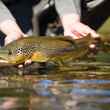


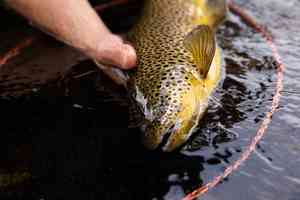

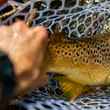




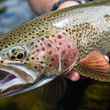



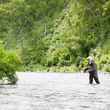




![Instructors John Juracek [left] and Brant Oswald [right] from The School of Trout (photo: Tim Romano). school of trout instructors john juracek brant oswald](https://www.hatchmag.com/sites/default/files/styles/gallery_thumbnail/public/field/image/romano-0024.jpg?itok=X_had7Jf)
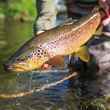





Comments
Ron Dickson replied on Permalink
Thank you for publishing this!
Mark van Roojen replied on Permalink
Thanks also for the last part on how to write effective comments.
Steven Matter replied on Permalink
Some of you voted for Trump for reasons that are important to you. But you did not vote for many of the policies he is now standing behind. Make yourself heard by calling, writing or demonstrating.
TC Thompson replied on Permalink
If its not a religion than why when respected scientists come out against the narrative they're shunned and treated like apostates? Also if its such a threat why are there no calls to stop China from building coal power plants every week and even giving them 3rd world status in the paris climate accord? Similarly wheres the calls to sanction India for the pollution they're causing. The fact remains America could be carbon neutral and it would make zero impact. So until you deal with reality that China and India are "driving man made climate change" why should we bankrupt the US when it wont solve the issues. Also wind and solar farms are blights on the environment and render the land useless.
Scott replied on Permalink
Just for giggles, take a look at Ruth, NV on google maps. That's from mining. Me, I think a wind farm would look a tad less "blighty" nor render the land useless.
Glenn R. Dotter replied on Permalink
You are on the mark! The earths Climate has changed constantly over its existance. But the CO2 BS is just that. Every plant on the planet needs CO2 to survive. They create the O2 we breathe, yet we burn and destroy forests around the world not in the name of deveopment, but in the name of money. There would be no such thing as Climate Change but for the trillions of dollars the liberals have poured into it with no real results.
This is not to say we shouldnt take care of our environment. But as you say. The US vould be completely Carbon neutral at an absurd cost and make no impact on the earths climate and weather.
I find it funny that these socalled fishers talking about climate change yet driving high priced gas and diesel vehicles pulling campers and RV's all over to pusue their "sport". Even those that drive electric powered from electricity largely produced from coal, oil, and gas and with unrecycleable lithium batteries.
Similarly, wind turbine blades are buried not recycled. The same goes for solar.
So before you tell the rest of us, you climate changers had better look in the mirror. I can tell you as a Conservative, my Carbon footprint has you beat by a longshot. Ive been off grid for 30 years. My flyfishing is limited to a 100 mile radius. I dont own an RV. I sleep in a tent. I dont fly all over to catch a trout that I can catch in my home waters. I pick up and carry out the trash on my waters left by others.
You are free to do and say and write as you choose. Dont expect me to buy it.
Tight lines.
Anonymous replied on Permalink
No matter what the politics, most of us agree with science that climate change is real. And to say we did nothing at all because other countries were fouling the climate will make no sense to our grandchildren. Read up on wind and solar; other countries are making great strides.
Arthur Messer replied on Permalink
Climate Change is nonsense. Keeping up the climate change hogwash will not help the fisheries. Good Science will. Diseases, mismanagement, and over harvesting threaten fisheries.
Paul replied on Permalink
The article is right on the money. Addressing and planning for the consequences of climate change is up to all of us regardless of what administration is in power. I know it's typical to exclaim 'the EPA" is doing this or that but as a retired EPA employee I have to say the good people working at EPA have nothing to do with initiating this debacle. The current President and his posse are the ones responsible for this roll back.
Pages